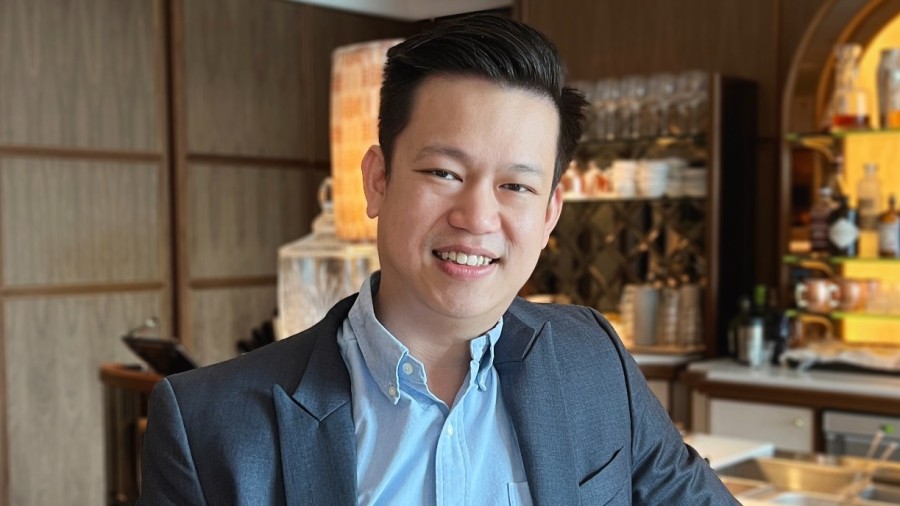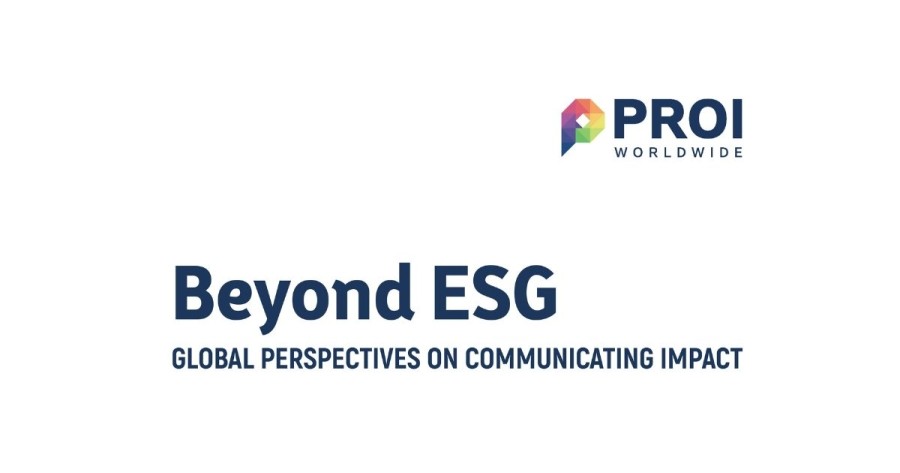Following Ellerton & Co.'s latest expansion into the Philippines, we caught up with Gab Abeleda and Ariana Ubina to share insights on why the Philippines is gaining attention from global brands, growth opportunities beyond Manila, and the best comms strategies for achieving long-term success in the market.
What makes the Philippines an attractive market for global brands today, and how has this evolved in recent years?
Gab Abeleda: Global brands looking to set up shop in the Philippines can benefit from the country’s growing middle class and young, digitally savvy population. The Philippines has consistently ranked high in social media use, and recently, the use of emerging technologies such as artificial intelligence (AI) in the workplace. With more than half of the population under 30, more consumers are living deeply digital lifestyles, increasing demand for innovative and personalised products and experiences. This raises the onus for global brands to effortlessly integrate into these digital lifestyles, while threading cultural sensibilities.
Ariana Ubina: The market is also considered a key hub for tech talent, driven by its young and educated workforce, well-versed in the language of technology and innovation. This gives global companies more opportunities to scale their businesses through finding and utilising the right talent. This unpacks tremendous potential as it allows companies to marry both global and local insights into their day-to-day operations, product / service development, and customer engagement.
Manila has long been the country’s business hub, but what other cities should companies watch for growth?
Gab: Beyond Manila, Cebu and Davao continue to lead as the country’s most promising growth centres. Cebu remains a key economic contributor, supported by major infrastructure developments like the Cebu Rapid Transit and the Cebu Mactan 4th Bridge. Office demand is surging, with occupancy nearing 80 percent, driven largely by the IT BPM sector. Meanwhile, Davao is solidifying its role as Mindanao’s business capital, posting 7.5 percent growth and contributing over half of the region’s GDP. Its diversified economy, spanning agribusiness, tourism and technology, along with strong governance and public safety, makes it a top destination for expansion.
Ariana: Beyond the usual hotspots, Cagayan de Oro is one to watch. It recently ranked third among startup hubs in the Philippines, and BCI Global identifies it as one of 24 emerging tech hubs worldwide. With a population of over 1.7 million, the city offers a compelling mix of scale, affordability, and livability. It's quickly becoming a strong contender for international tech and support operations seeking their next frontier.
Based on your experience working with major global brands, what are the most effective strategies for market entry and long-term success in the Philippines?
Gab: Localisation is key for global brands to succeed in the Philippines. Messages are best retained and understood when we feel most connected to them - creating a ripple effect that transforms brand users / customers into brand advocates. While it is important to get people to use a brand, long-term success is hinged upon creating communities of advocates that constantly rally behind a brand’s purpose. Brands that invest time and effort in understanding how to communicate to Filipinos, and cut through cultural nuances will set themselves up to build deeper connections with customers, and end up thriving the most.
Ariana: Thoughtful storytelling and authentic engagement are key comms principles brands must adhere to when expanding to the Philippines. This can take on many forms, such as having a spokesperson who genuinely understands local culture and nuances and can deliver messages that resonate deeply with Filipinos. Brands must also offer products and services that make sense for digitally savvy Filipinos across generations, or help businesses digitally transform to improve their offerings to consumers. These create effective communications campaigns that highlight how a firm creates a real impact for its audience and the industry as a whole, building reputation, attracting partnerships, and driving customer acquisition.
For Philippine
brands looking to expand internationally, what are your top tips for increasing visibility and staying competitive in the global market?
Gab: Never underestimate the power of a good communications strategy. This allows local brands to be intentional with their expansion plan by highlighting what makes them competitive on the global scale, without losing sight of their local roots. A good communications plan also comes with a sustainable cadence, with local sensibilities in mind. Brands must invest time and effort to consistently communicate their added value, backed by a clear understanding of the messages and channels that resonate best in those new markets.
Ariana: Media engagement is a powerful way to boost visibility and position your business as a competitive player. One evergreen angle is industry trends, which not only fuels relevant storytelling but also strengthens your thought leadership. Spokespersons should demonstrate a clear understanding of market shifts and how their company is built to adapt and stay resilient, setting the tone for best practices in the industry. Just as crucial is highlighting your ‘why’. When your mission is reflected in every product, service, and initiative, your brand becomes more relatable and grounded. This makes it easier to build trust, increase visibility, and stay competitive in new markets.
Looking ahead, what sectors do you see driving the next wave of growth in the Philippines?
Gab: The financial services industry will continue to drive growth for the Philippines, due to consolidated efforts from public and private groups to boost digital literacy and financial inclusion. Fintech start-ups in the country have grown tremendously over the last couple of years, and are showing no signs of slowing down. Likewise, traditional industry players have consistently demonstrated their commitment to integrating digital solutions into their services. With AI thrown into the mix, this industry is poised to grow even more as stakeholders find new and creative ways to help Filipinos make better financial decisions, and even take part in the digital economy.
Ariana: Sectors like wholesale and retail trade, vehicle repair, financial services, and construction have been key drivers of the economy in recent months, according to the Philippine Statistics Authority. These highlight how strong performance in core industries fuels overall growth. Looking ahead, essential sectors such as logistics, healthcare, education, and agriculture will remain a driving force, especially as technology continues to create space for all industries to evolve. There's growing potential for efficiency, inclusivity, and sustainability as more businesses modernise legacy systems. Adopting new technologies while preserving valuable practices is key to long-term growth.

Feature
Telum Talks To: Gab Abeleda and Ariana Ubina from Ellerton & Co.
by Telum Media
7 April 2025 4:00 PM
6 mins read
Telum Media creating connections
Get in touch to learn more
You might also enjoy
Moves
Aaron Tan has joined FleishmanHillard as Auto Practice Lead and Account Director, bringing experience across branding, communications, marketing and digital strategy.
Based in Singapore, he has accumulated more than 15 years of experience, having previously held senior roles at agencies including The Ate Group and W Communications.
31 December 2025 2:49 AM
1 min read
Moves
Alexa Cheah has joined W Kuala Lumpur as Marketing Communications Manager. In her new role, she manages the hotel’s brand and communications efforts, including media relations, corporate communications and reputation, events, social media, as well as beverage and food marketing, working alongside the Director of Marketing Communications.
Her prior experience includes roles at Grand Hyatt Kuala Lumpur, followed by Hyatt Hotels in Malaysia, where she contributed to brand campaigns, hotel openings, and cross-property initiatives in the cluster marketing team.
29 December 2025 7:17 AM
1 min read
Research
PROI has released their latest report, "Beyond ESG: Global perspectives on communicating impact". With insights from 11 global communications agencies, the report highlights key trends shaping how ESG and purpose will be communicated in 2026.
Ted Deutsch, Executive Managing Director of RF|Binder and Chair of PROI's ESG Working Group, said: "While certain markets are shying away from acronyms and terms that are seen as overly political, this PROI report confirms that companies are still focused on driving change through sustainability, corporate culture and good governance. The challenge now lies in communicating this with authenticity."
ESG across the regions
ESG maturity differs widely by region. Markets such as Australia, Switzerland, and the Middle East operate in relatively advanced regulatory environments. In Australia especially, Paula Cowan, Managing Director at ImpactInstitute, described ESG as no longer a "nice to have," but rather a licence to operate.
Meanwhile, countries such as Poland and the Czech Republic are experiencing signs of ESG fatigue. As Dirk Aarts, CEO of 24/7 Communication, observed in Poland: "...enthusiasm has cooled. Many businesses now treat ESG chiefly as a regulatory requirement rather than a reputational advantage."
In Thailand, ESG is viewed as central to long-term competitiveness, economic resilience, and access to global markets. Whereas in Ukraine, ESG is shaped by wartime realities and EU integration, with social impact and resilience taking precedence.
Despite their differences, one thing stays consistent: stakeholder expectations are converging. The report highlights how companies are increasingly expected to demonstrate real progress and credible outcomes rather than just showing intent.
Global pressures driving change
It was reported that every region, in one way or another, was being impacted by global forces reshaping their ESG communications. Regulatory alignment stood out as a major driver, particularly around mandates by the International Sustainability Standards Board (ISSB), the Corporate Sustainability Reporting Directive (CSRD), and other international disclosure frameworks.
Trade-related mechanisms, such as the EU's Carbon Border Adjustment Mechanism, have resulted in a push for ESG adoption in export-oriented economies like Thailand. Chelsea King, Head of PR Operations and Editorial Director Midas PR, explained: "This creates direct financial pressure and has spurred Thailand’s domestic carbon tax and mandatory reporting efforts."
Political dynamics also play a significant role, with the U.S. becoming the focal point of ESG politicisation, influencing corporate behaviour across multiple markets. This has contributed to more cautious language globally. For example, in Canada, "...U.S. discourse has influenced Canadian corporate leaders to reconsider how explicitly they use the 'ESG' label," said Kimberly Cohen, CEO of Brown & Cohen.
At the same time, global enforcement action against greenwashing is increasing in Canada, as well as other markets such as Australia, Switzerland, and the UK, reinforcing a shift toward proof-based communication.
Language and framing
The report outlined a clear global trend: the declining use of the acronyms "ESG" and "DEI" in public-facing communications. While these terms remain common in investor, regulatory, and technical contexts, organisations are shifting toward simpler and less politicised language, such as "sustainability," "responsible business," "resilience," and "impact."
Kimberly noted that in Canada, these acronyms are increasingly being broken down into their component parts, whereas in Poland, Dirk explained that the narrative now focuses on health, quality of life, and local community impact - moving away from war language, such as "fighting climate change," toward tangible well-being. This shift doesn't reflect a divergence from ESG principles, but rather as an effort to improve clarity, reduce political risk, and connect more directly with local audiences.
Across several regions, including Canada, the UK, the U.S., Thailand, and the Middle East, an increase in social initiatives continues, but under different labels, such as workforce development, inclusion and belonging, human capital management, and community impact.
Communications challenges
Across all regions, communications leaders are reported to have been facing similar challenges, particularly in balancing ambition with credibility. Stakeholders expect companies to act, but are increasingly rejecting vague or exaggerated claims. Greenwashing, social-washing, and "greenhushing" - deliberately under-communicating progress, which is reported to be rising in Australia - are recurring risks.
Another challenge is internal alignment. ESG data and narratives often sit across multiple functions at an organisation, and when teams are not aligned, messaging can become inconsistent or fragmented, resulting in a lack of trust. In sensitive contexts, such as in Ukraine or politically polarised markets like the U.S. and UK, audiences are sceptical and quick to point out inauthenticity.
Looking ahead
Contributors generally predict that over the next two to three years, ESG communications are expected to become more integrated with financial reporting and core business strategy. Many regions anticipate stricter disclosure requirements, greater use of assurance, and increased focus on governance as the foundation for environmental and social credibility.
Media scrutiny is also intensifying. Investigative reporting on ESG claims is growing, while routine sustainability announcements receive less attention unless backed by data or clear outcomes. At the same time, there is continued demand for accessible explanations, case studies, and stories that demonstrate how ESG efforts deliver tangible benefits to communities, employees, and economies.
Practical guidance for communications professionals
Based on insights across all 11 markets, some common practical guidance include:
- Lead with evidence: Anchor claims in data, defined methodologies, and disclosures, with assurance.
- Adapt language and be precise: Localise messaging and ensure clear messaging that resonates with target audiences, while avoiding unnecessary jargon.
- Show progress over time: Share interim milestones and regular updates to demonstrate momentum and avoid greenwashing or greenhushing.
- Integrate ESG into the business narrative: Position environmental, social, and governance efforts as part of core strategy and operations, rather than a standalone initiative globally.
Find the full report, including in-depth insights for each region, here.
29 December 2025 6:15 AM
5 mins read


